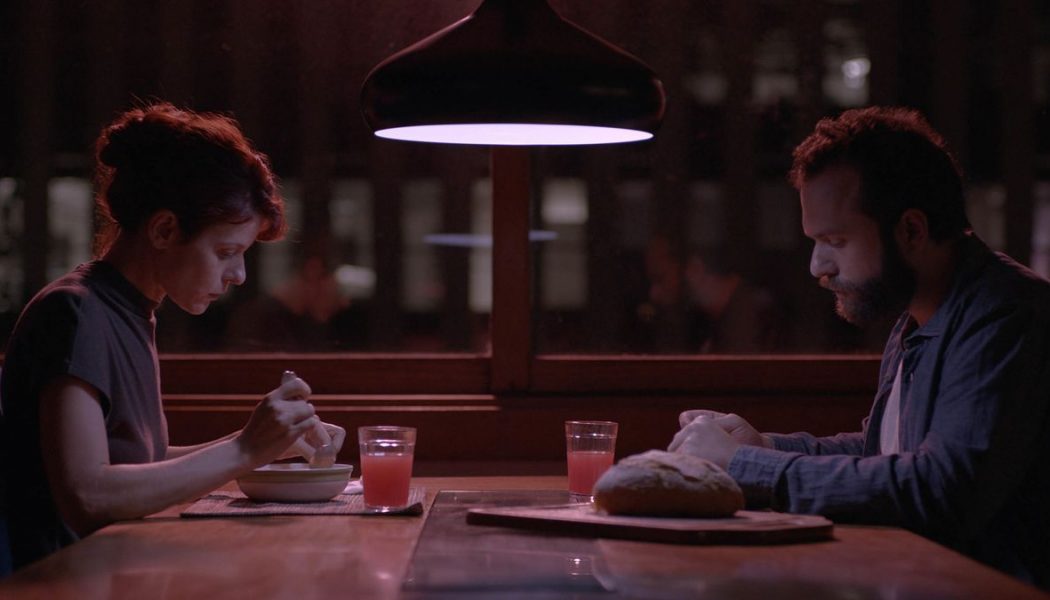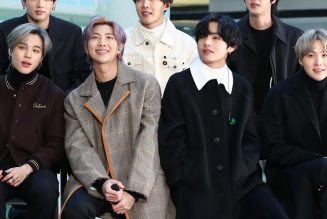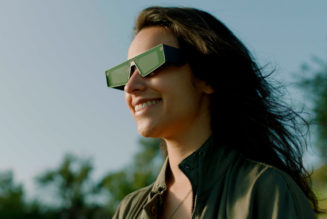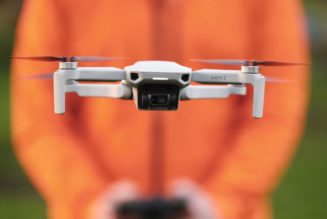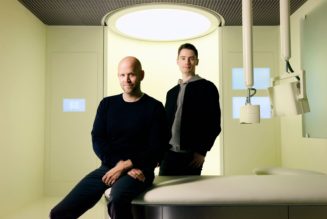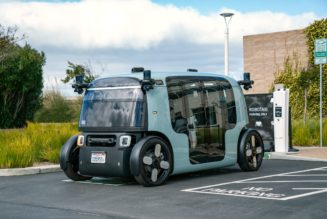Like most recent events, the 2021 edition of the Sundance Film Festival has shifted from an in-person showcase to a virtual one. Despite the change, we’ll still be bringing you reviews on the most interesting experiences we find, from indie films to VR experiments.
The Pink Cloud starts with a message that underlines the distressing ludicrousness of where we are: it’s a movie about people stuck in a never-ending quarantine because of a deadly threat outside their doors. It’s also an early prescient one, as it was written in 2017 and filmed in 2019. It has no purposeful connections to the COVID-19 pandemic, but it’s impossible not to draw parallels between The Pink Cloud and our current reality.
The movie is set in a Brazilian city where a mysterious pink gaseous cloud hovers over residents and kills people if they’re outside for longer than 10 seconds, trapping them in whatever building they’ve found shelter in for years at a time. That said, The Pink Cloud is less about the deadliness of their situation and more about the devastating monotony that follows. Quarantine is seen through a relationship between Giovana (Renata de Lélis) and Yago (Eduardo Mendonça), a one-night stand that turns into something much longer-term when they’re forced to move in together. Over the course of the next several years, Giovana and Yago navigate becoming a couple, having a child, separating without leaving the apartment, virtually dating, and getting back together.
It’s the quiet moments that are The Pink Cloud’s most powerful. FaceTime calls become tedious, eating the same thing day in and day out becomes a drag, and the only other person in people’s lives starts to grate on every nerve. We aren’t meant to suddenly stop physical contact with the rest of the world, and the cataclysmic effects of being cut off from everyone and anyone is quietly destructive. Life seems to suddenly speed up and slow down all at once. Giovana goes from being staunchly against children to having one, waiting for the lethal cloud to go away while settling into domestic routines because there’s no other way to live.
:no_upscale()/cdn.vox-cdn.com/uploads/chorus_asset/file/22274504/50611074117_bbbb01be10_k.jpg)
At the center of it is the internal battle between the never-ending hope things will get better and the sinking realization there’s no end in sight. People switch careers to find something they can do at home, learn new skills, watch way too much TV, play too many games, find virtual boyfriends and girlfriends, and go to school at home. Children are born into the void knowing nothing about the outside world other than what they can see from their windows. Adults who remember life pre-cloud dream of getting back to the world they once knew while working to make their new living conditions the best they can.
The Pink Cloud is supposed to be a science fiction story, a dystopian world that quietly asks, “How would you cope in this situation?” Watching the movie in 2021, the answer is obvious: I don’t have to wonder how I’d cope, I know exactly how I’ve dealt with not being able to see family members or certain friends for nearly a year. But even with the “fiction” aspect of The Pink Cloud’s science fiction setting removed, the movie still hit home the hardest part of Giovana and Yago’s ordeal, one that I’m still struggling with and I’m sure millions of other people are, too.
When does it all end? How much optimism can someone have that eventually the pandemic — the pink cloud — will just disappear and life will return to normal? What does return to normal even mean? At a time when I’ve turned to movies to try to escape or find answers to problems that I have no control over, The Pink Cloud is a reminder of our daily life these past 300 or so days, and it provides no immediate answer.
Turns out, The Pink Cloud was exactly the movie that I needed. I devoured watching this couple struggle with the same internal battle of hope and acceptance, desires and settling, fond memories of the before time and preparation for what comes next. The Pink Cloud, a movie written some 1,100 days before the pandemic, ironically became a way for me to process so much of what happened in 2020.
